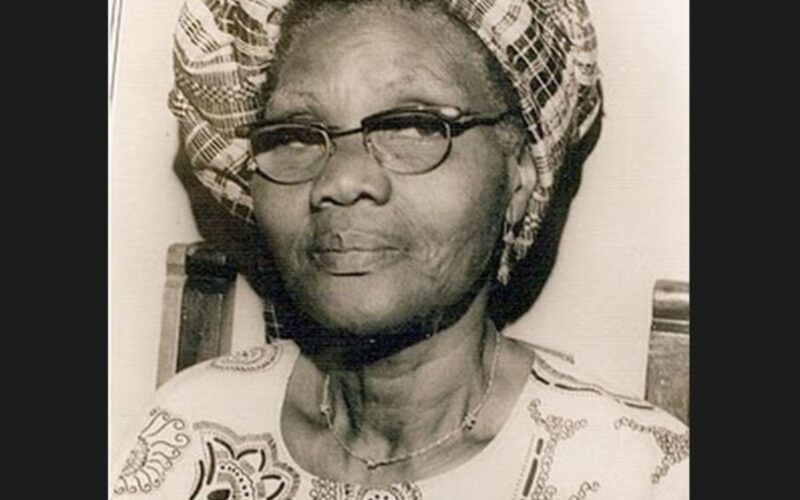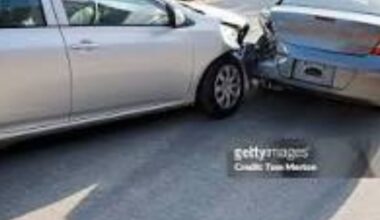It is common to see women drive cars in Nigeria today, at the cause of your reading you will get to know the first woman to drive a car in Nigeria.
She’s not just any lady; she’s the first woman to hop behind the wheel and cruise those Nigerian roads.
Her story isn’t just about driving; it’s about guts, smashing barriers, and showing everyone what women are made of.
So get ready for an exciting ride as we explore the amazing journey of the first woman to drive a car in Nigeria. who the woman was, and the impact she made.
First Woman to Drive a Car in Nigeria
The first woman to drive a Car in Nigeria is Mrs Funmilayo Ransome-Kuti, a Nigerian activist, suffragist, and the first woman in Abeokuta to drive a car. She is recognized as the first female Nigerian political activist.
She was a politician, women’s rights activist, educator, and a beacon of change; her visionary ideas reshaped the landscape of women’s rights in Nigeria forever!
This remarkable woman stood as one of the most prominent leaders and role models of her era. Let’s unveil her identity. History hails her as Nigeria’s first female political activist and fondly remembers her as “The Mother of Africa”.
A formidable force in politics, she tirelessly advocated for women’s rights in Nigeria, earning her the moniker “Lioness of Lisabi” by The West African Pilot.
Funmilayo Ransome Kuti’s Biography
The proud mother of Fela Anikulapo Kuti and Beco Ransome Kuti, as well as the grandmother of Femi Kuti and Seun Kuti, she was none other than Funmilayo Ransome Kuti.
Born Francis Abigail Olufunmilayo Thomas on October 25, 1900, to Lucretia Phyllis Omoyeni Adeosulu and Daniel Olumeyuwa Thomas in Abeokuta, her journey began at Abeokuta Grammar School.
Recognizing her intellect and talent, she pursued further education in England but harbored a deep desire to impart knowledge to her fellow countrymen, leading her back to Nigeria where she became a teacher.
In 1925, she married Reverend Israel Oludotun Ransome-Kuti and ventured into leadership roles, becoming the head of the Nigerian Union of Students and later joining the Nigerian Union of Teachers.
Her contributions were acknowledged with the Order of Nigeria in 1965 and a doctorate in law in 1968, alongside her representation in the Western House of Chiefs.
As an activist and educator, Funmilayo Ransome Kuti championed the cause of women’s liberation, tirelessly advocating for their equality with men. She even spearheaded a campaign to secure women’s right to drive, leaving an indelible mark on Nigerian society.
Her zenith of political activism came in the 1950s when she founded a women’s organization in Abeokuta, boasting a membership of about 20,000 women.
She was a testament to the power of individual agency and collective action, a reminder that change is not merely inevitable but achievable, one courageous step at a time.
Brief Bio Of Funmilayo Ransome-Kuti
| Name | Funmilayo Ransome-Kuti |
|---|---|
| Date of birth | 25 October 1900 |
| Place of birth | Abeokuta, Southern Nigeria |
| Died | 13 April 1978 (aged 77) |
| Place | Lagos, Nigeria |
| Occupations | Educator, politician, women’s rights activist |
| Spouse | Israel Oludotun Ransome-Kuti (m. 1925; died 1955) |
| Children | Dolapo Ransome-Kuti (daughter) |
| Olikoye Ransome-Kuti (son) | |
| Fela Anikulapo-Kuti (son) | |
| Beko Ransome-Kuti (son) |
Who is the First Nigerian to Ride a Car?
The first Nigerian to ride a car is not specifically documented, but considering the historical context, it is likely that the honor belongs to a prominent individual during Nigeria’s colonial era when automobiles were introduced to the country.
Who Was the First Person to Own a Car in Nigeria?
The first person to own a car in Nigeria is not definitively recorded. However, during the colonial period, cars were primarily owned by colonial administrators, wealthy merchants, and influential individuals.
The specific identity of the first car owner remains unclear.
What is the Name of the Fastest Car in Nigeria?
The name of the fastest car in Nigeria can vary depending on individual preferences, technological advancements, and market availability.
As of now, specific records or designations for the “fastest car in Nigeria” might not exist, as it can be subjective and dependent on factors such as top speed, acceleration, and performance metrics.
Who Was the First Woman to Drive a Car in South Africa?
The first woman to drive a car in South Africa is widely acknowledged to be Mrs. Mabel Palmer, who accomplished this feat in 1908.
Her bold act challenged societal norms and paved the way for women’s increased participation in driving and other male-dominated spheres.
Who is the First Person to Drive a Car from London to Nigeria?
The first person to drive a car from London to Nigeria is not extensively documented. However, numerous adventurous individuals undertook epic journeys by car from Europe to Africa during the early 20th century when automobile travel was still in its infancy.
These journeys often required courage, resourcefulness, and mechanical skill to navigate the challenging terrain and conditions encountered along the way.
Conclusion
In conclusion, the story of the first woman to drive a car in Nigeria is a testament to the power of courage, determination, and resilience in the face of adversity.
Against all odds, she defied societal expectations and shattered stereotypes, paving the way for future generations of women to pursue their dreams without fear or hesitation.
Her pioneering spirit continues to inspire us all, reminding us that no obstacle is insurmountable and no dream is too audacious for those with the courage to chase it.
As we celebrate her legacy, let us also commit ourselves to building a future where every individual, regardless of gender, can thrive and succeed on their own terms.







